- Home
- Wilkie Collins
Classic Ghost Stories Page 5
Classic Ghost Stories Read online
Page 5
That I more than once looked back at the red light as I ascended the pathway, that I did not like the red light, and that I should have slept but poorly if my bed had been under it, I see no reason to conceal. Nor did I like the two sequences of the accident and the dead girl. I see no reason to conceal that either.
But what ran most in my thoughts was the consideration how ought I to act, having become the recipient of this disclosure? I had proved the man to be intelligent, vigilant, painstaking, and exact; but how long might he remain so, in his state of mind? Though in a subordinate position, still he held a most important trust, and would I (for instance) like to stake my own life on the chances of his continuing to execute it with precision?
Unable to overcome a feeling that there would be something treacherous in my communicating what he had told me to his superiors in the Company, without first being plain with himself and proposing a middle course to him, I ultimately resolved to offer to accompany him (otherwise keeping his secret for the present) to the wisest medical practitioner we could hear of in those parts, and to take his opinion. A change in his time of duty could come round next night, he had apprised me, and he would be off an hour or two after sunrise, and on again soon after sunset. I had appointed to return accordingly.
Next evening was a lovely evening, and I walked out early to enjoy it. The sun was not yet quite down when I traversed the field-path near the top of the deep cutting. I would extend my walk for an hour, I said to myself, half an hour on and half an hour back, and it would then be time to go to my signalman’s box.
Before pursuing my stroll, I stepped to the brink and mechanically looked down, from the point from which I had first seen him. I cannot describe the thrill that seized upon me, when, close at the mouth of the tunnel, I saw the appearance of a man, with his left sleeve across his eyes, passionately waving his right arm.
The nameless horror that oppressed me passed in a moment, for in a moment I saw that this appearance of a man was a man indeed, and that there was a little group of other men, standing at a short distance, to whom he seemed to be rehearsing the gesture he made. The Danger-light was not yet lighted. Against its shaft a little low hut, entirely new to me, had been made of some wooden supports and tarpaulin. It looked no bigger than a bed.
With an irresistible sense that something was wrong—with a flashing self-reproachful fear that fatal mischief had come of my leaving the man there, and causing no one to be sent to overlook or correct what he did—I descended the notched path with all the speed I could make.
“What is the matter?” I asked the men.
“Signalman killed this morning, Sir.”
“Not the man belonging to that box?”
“Yes, Sir.”
“Not the man I know?”
“You will recognize him, Sir, if you knew him,” said the man who spoke for the others, solemnly uncovering his own head, and raising an end of the tarpaulin, “for his face is quite composed.”
“O, how did this happen, how did this happen?” I asked, turning from one to another as the hut closed in again.
“He was cut down by an engine, Sir. No man in England knew his work better. But somehow he was not clear of the outer rail. It was just at broad day. He had struck the light, and had the lamp in his hand. As the engine came out of the tunnel, his back was towards her, and she cut him down. That man drove her, and was showing how it happened. Show the gentleman, Tom.”
The man, who wore a rough dark dress, stepped back to his former place at the mouth of the tunnel.
“Coming round the curve in the tunnel, Sir,” he said, “I saw him at the end, like as if I saw him down a perspective-glass. There was no time to check speed, and I knew him to be very careful. As he didn’t seem to take heed of the whistle, I shut it off when we were running down upon him, and called to him as loud as I could call.”
“What did you say?”
“I said, ‘Below there! Look out! Look out! For God’s sake, clear the way!”
I started.
“Ah! it was a dreadful time, Sir. I never left off calling to him. I put this arm before my eyes not to see, and I waved this arm to the last; but it was no use.”
Without prolonging the narrative to dwell on any one of its curious circumstances more than on any other, I may, in closing it, point out the coincidence that the warning of the engine-driver included, not only the words which the unfortunate signalman had repeated to me as haunting him, but also the words which I myself—not he—had attached, and that only in my own mind, to the gesticulation he had imitated.
WILKIE COLLINS
MRS. ZANT AND THE GHOST
1
THE COURSE of this narrative describes the return of a disembodied spirit to earth, and leads the reader on new and strange ground.
Not in the obscurity of midnight, but in the searching light of day, did the supernatural influence assert itself Neither revealed by a vision, nor announced by a voice, it reached mortal knowledge through the sense which is least easily self-deceived: the sense that feels.
The record of this event will of necessity produce conflicting impressions. It will raise, in some minds, the doubt which reason asserts; it will invigorate, in other minds, the hope which faith justifies; and it will leave the terrible question of the destinies of man, where centuries of vain investigation have left it—in the dark.
Having only undertaken in the present narrative to lead the way along a succession of events, the writer declines to follow modern examples by thrusting himself and his opinions on the public view. He returns to the shadow from which he has emerged, and leaves the opposing forces of incredulity and belief to fight the old battle over again, on the old ground.
2
The events happened soon after the first thirty years of the present century had come to an end.
On a fine morning, early in the month of April, a gentleman of middle age (named Rayburn) took his little daughter Lucy out for a walk, in the woodland pleasure-ground of Western London, called Kensington Gardens.
The few friends whom he possessed reported of Mr. Rayburn (not unkindly) that he was a reserved and solitary man. He might have been more accurately described as a widower devoted to his only surviving child. Although he was not more than forty years of age, the one pleasure which made life enjoyable to Lucy’s father was offered by Lucy herself.
Playing with her ball, the child ran on to the southern limit of the Gardens, at that part of it which still remains nearest to the old Palace of Kensington. Observing close at hand one of those spacious covered seats, called in England “alcoves,” Mr. Rayburn was reminded that he had the morning’s newspaper in his pocket, and that he might do well to rest and read. At that early hour, the place was solitude.
“Go on playing, my dear,” he said; but take care to keep where I can see you.”
Lucy tossed up her ball; and Lucy’s father opened his newspaper. He had not been reading for more than ten minutes, when he felt a familiar little hand laid on his knee.
“Tired of playing?” he inquired—with his eyes still on the newspaper.
“I’m frightened, papa.”
He looked up directly. The child’s pale face startled him. He took her on his knee and kissed her.
“You oughtn’t to be frightened, Lucy, when I am with you,” he said gently. “What is it?” He looked out of the alcove as he spoke, and saw a little dog among the trees. “Is it the dog?” he asked.
Lucy answered:
“It’s not the dog—it’s the lady.”
The lady was not visible from the alcove.
“Has she said anything to you?” Mr. Rayburn inquired.
“No.”
“What has she done to frighten you?”
The child put her arms round her father’s neck.
“Whisper, papa,” she said; “I’m afraid of her hearing us. I think she’s mad.”
“Why do you think so, Lucy?”
“She came near to me. I thought she
was going to say something. She seemed to be ill.”
“Well? And what then?”
“She looked at me.”
There, Lucy found herself at a loss how to express what she had to say next—and took refuge in silence.
“Nothing very wonderful, so far,” her father suggested.
“Yes, papa—but she didn’t seem to see me when she looked.”
“Well, and what happened then?”
“The lady was frightened—and that frightened me. I think,” the child repeated positively, “she’s mad.”
It occurred to Mr. Rayburn that the lady might be blind. He rose at once to set the doubt at rest.
“Wait here,” he said, “and I’ll come back to you.”
But Lucy clung to him with both hands; Lucy declared that she was afraid to be by herself. They left the alcove together.
The new point of view at once revealed the stranger, leaning against the trunk of a tree. She was dressed in the deep mourning of a widow. The pallor of her face, the glassy stare in her eyes, more than accounted for the child’s terror—it excused the alarming conclusion at which she had arrived.
“Go nearer to her,” Lucy whispered.
They advanced a few steps. It was now easy to see that the lady was young, and wasted by illness—but (arriving at a doubtful conclusion perhaps under present circumstances) apparently possessed of rare personal attractions in happier days. As the father and daughter advanced a little, she discovered them. After some hesitation, she left the tree; approached with an evident intention of speaking; and suddenly paused. A change to astonishment and fear animated her vacant eyes. If it had not been plain before, it was now beyond all doubt that she was not a poor blind creature, deserted and helpless. At the same time, the expression of her face was not easy to understand. She could hardly have looked more amazed and bewildered, if the two strangers who were observing her had suddenly vanished from the place in which they stood.
Mr. Rayburn spoke to her with the utmost kindness of voice and manner.
“I am afraid you are not well,” he said. “Is there anything that I can do——”
The next words were suspended on his lips. It was impossible to realize such a state of things; but the strange impression that she had already produced on him was now confirmed. If he could believe his senses, her face did certainly tell him that he was invisible and inaudible to the woman whom he had just addressed! She moved slowly away with a heavy sigh, like a person disappointed and distressed. Following her with his eyes, he saw the dog once more—a little smooth-coated terrier of the ordinary English breed. The dog showed none of the restless activity of his race. With his head down and his tail depressed, he crouched like a creature paralysed by fear. His mistress roused him by a call. He followed her listlessly as she turned away.
After walking a few paces only, she suddenly stood still.
Mr. Rayburn heard her talking to herself.
“Did I feel it again?” she said, as if perplexed by some doubt that awed or grieved her. After a while, her arms rose slowly, and opened with a gentle caressing action—an embrace strangely offered to the empty air! “No,” she said to herself sadly, after waiting a moment. “More perhaps when to-morrow comes—no more to-day.” She looked up at the clear blue sky. “The beautiful sunlight! the merciful sunlight!” she murmured. “I should have died if it had happened in the dark.”
Once more she called to the dog; and once more she walked slowly away.
“Is she going home, papa?” the child asked.
“We will try and find out,” the father answered.
He was by this time convinced that the poor creature was in no condition to be permitted to go out without someone to take care of her. From motives of humanity, he was resolved on making the attempt to communicate with her friends.
3
The lady left the Gardens by the nearest gate; stopping to lower her veil before she turned into the busy thoroughfare which leads to Kensington. Advancing a little way along the High Street, she entered a house of respectable appearance, with a card in one of the windows which announced that apartments were to let.
Mr. Rayburn waited a minute—then knocked at the door, and asked if he could see the mistress of the house. The servant showed him into a room on the ground floor, neatly but scantily furnished. One little white object varied the grim brown monotony of the empty table. It was a visiting-card.
With a child’s unceremonious curiosity Lucy pounced on the card and spelt the name, letter by letter:
“Z.A.N.T.” she repeated. “What does that mean?”
Her father looked at the card, as he took it away from her, and put it back on the table. The name was printed, and the address was added in pencil: “Mr. John Zant, Purley’s Hotel.”
The mistress made her appearance. Mr. Rayburn heartily wished himself out of the house again, the moment he saw her. The ways in which it is possible to cultivate the social virtues are more numerous and more varied than is generally supposed. This lady’s way had apparently accustomed her to meet her fellow-creatures on the hard ground of justice without mercy. Something in her eves, when she looked at Lucy, said:
“I wonder whether that child gets punished when she deserves it?”
“Do you wish to see the rooms which I have to let?” she began.
Mr. Rayburn at once stated the object of his visit—as clearly, as civilly, and as concisely as a man could do it. He was conscious (he added) that he had been guilty perhaps of an act of intrusion.
The manner of the mistress of the house showed that she entirely agreed with him. He suggested, however, that his motive might excuse him. The mistress’s manner changed, and asserted a difference of opinion.
“I only know the lady whom you mention,” she said, “as a person of the highest respectability, in delicate health. She has taken my first-floor apartments, with excellent references; and she gives remarkably little trouble. I have no claim to interfere with her proceedings, and no reason to doubt that she is capable of taking care of herself.”
Mr. Rayburn unwisely attempted to say a word in his own defence.
“Allow me to remind you——” he began.
“Of what, sir?”
“Of what I observed, when I happened to see the lady in Kensington Gardens.”
“I am not responsible for what you observed in Kensington Gardens. If your time is of any value, pray don’t let me detain you.”
Dismissed in those terms, Mr. Rayburn took Lucy’s hand and withdrew. He had just reached the door, when it was opened from the outer side. The Lady of Kensington Gardens stood before him. In the position which he and his daughter now occupied, their backs were towards the window. Would she remember having seen them for a moment in the Gardens?
“Excuse me for intruding on you,” she said to the landlady. “Your servant tells me my brother-in-law called while I was out. He sometimes leaves a message on his card.”
She looked for the message, and appeared to be disappointed: there was no writing on the card.
Mr. Rayburn lingered a little in the doorway, on the chance of hearing something more. The landlady’s vigilant eyes discovered him.
“Do you know this gentleman?” she said maliciously to her lodger.
“Not that I remember.”
Replying in those words, the lady looked at Mr. Rayburn for the first time; and she suddenly drew back from him.
“Yes,” she said, correcting herself; “I think we met——”
Her embarrassment overpowered her; she could say no more.
Mr. Rayburn compassionately finished the sentence for her.
“We met accidentally in Kensington Gardens,” he said.
She seemed to be incapable of appreciating the kindness of his motive. After hesitating a little she addressed a proposal to him, which seemed to show distrust of the landlady.
“Will you let me speak to you upstairs in my own rooms?” she asked.
Without waiting for a
reply, she led the way to the stairs. Mr. Rayburn and Lucy followed. They were just beginning the ascent to the first floor, when the spiteful landlady left the lower room, and called to her lodger over their heads:
“Take care what you say to this man, Mrs. Zant! He thinks you’re mad.”
Mrs. Zant turned round on the landing, and looked at him. Not a word fell from her lips. She suffered, she feared, in silence. Something in the sad submission of her face touched the springs of innocent pity in Lucy’s heart. The child burst out crying.
That artless expression of sympathy drew Mrs. Zant down the few stairs which separated her from Lucy.
“May I kiss your dear little girl?” she said to Mr. Rayburn. The landlady, standing on the mat below, expressed her opinion of the value of caresses, as compared with a sounder method of treating young persons in tears: “If that child was mine,” she remarked, “I would give her something to cry for.”
In the meantime, Mrs. Zant led the way to her rooms.
The first words she spoke showed that the landlady had succeeded but too well in prejudicing her against Mr. Rayburn.
“Will you let me ask your child,” she said to him, “why you think me mad?”
He met this strange request with a firm answer.
“You don’t know yet what I really do think. Will you give me a minute’s attention?”
“No,” she said positively. “The child pities me, I want to speak to the child. What did you see me do in the Gardens, my dear, that surprised you?” Lucy turned uneasily to her father; Mrs. Zant persisted. “I first saw you by yourself, and then I saw you with your father,” she went on. “When I came nearer to you, did I look very oddly—as if I didn’t see you at all?”

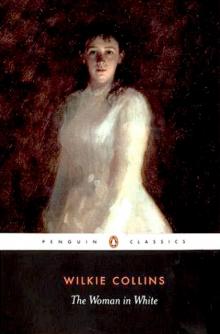 The Woman in White
The Woman in White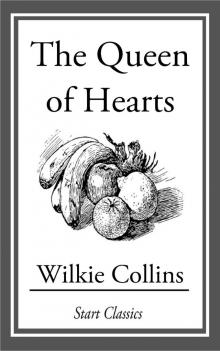 The Queen of Hearts
The Queen of Hearts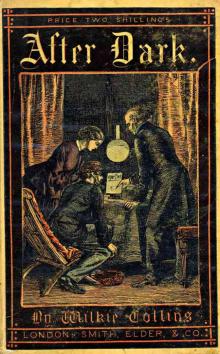 Miss Jeromette and the Clergyman
Miss Jeromette and the Clergyman Man and Wife
Man and Wife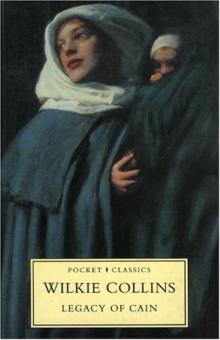 The Legacy of Cain
The Legacy of Cain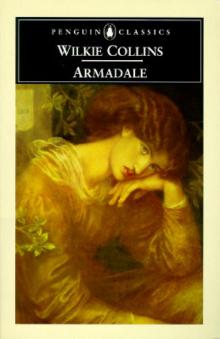 Armadale
Armadale The Frozen Deep
The Frozen Deep John Jago's Ghost or the Dead Alive
John Jago's Ghost or the Dead Alive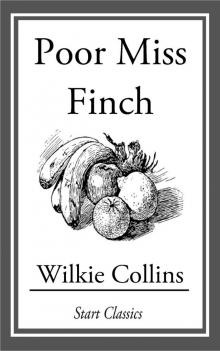 Poor Miss Finch
Poor Miss Finch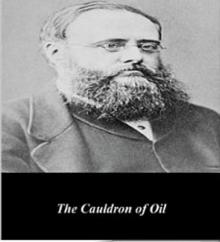 The Cauldron of Oil: A Case Worth Looking At
The Cauldron of Oil: A Case Worth Looking At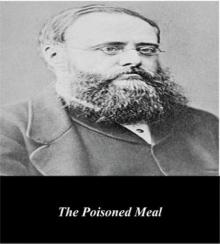 The Poisoned Meal
The Poisoned Meal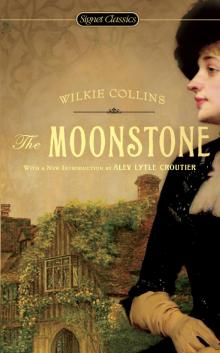 The Moonstone
The Moonstone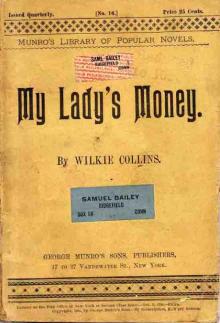 My Lady's Money
My Lady's Money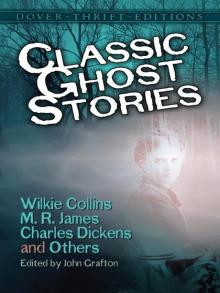 Classic Ghost Stories
Classic Ghost Stories Jezebel's Daughter
Jezebel's Daughter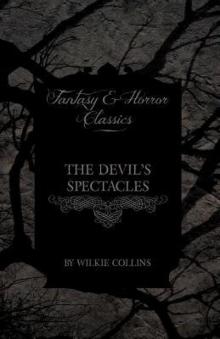 The Devil's Spectacles
The Devil's Spectacles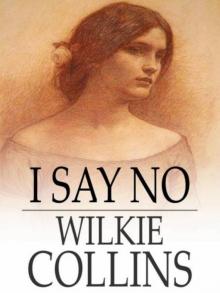 I Say No
I Say No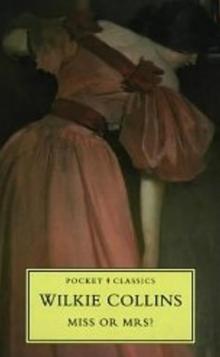 Miss or Mrs.?
Miss or Mrs.?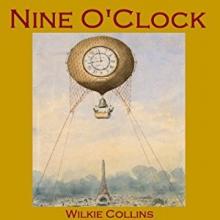 Nine O'Clock
Nine O'Clock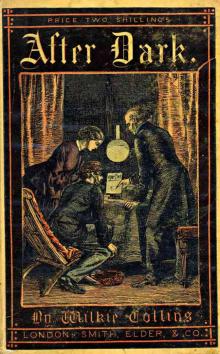 The Lawyer's Story of a Stolen Letter
The Lawyer's Story of a Stolen Letter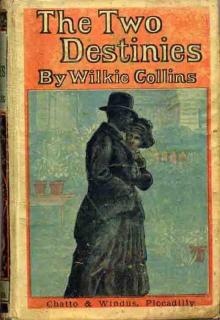 The Two Destinies
The Two Destinies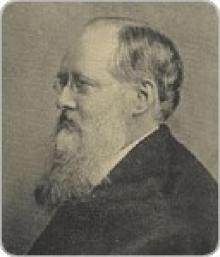 Mr. Percy and the Prophet
Mr. Percy and the Prophet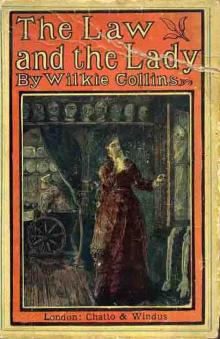 The Law and the Lady
The Law and the Lady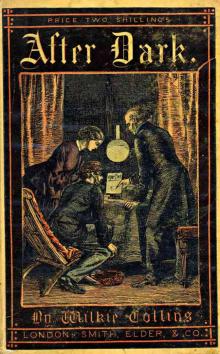 The Nun's Story of Gabriel's Marriage
The Nun's Story of Gabriel's Marriage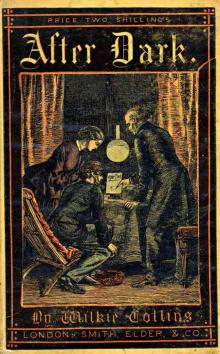 After Dark
After Dark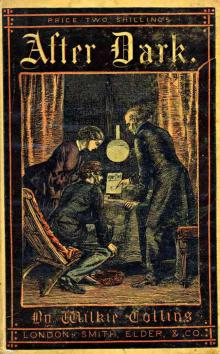 Mr. Captain and the Nymph
Mr. Captain and the Nymph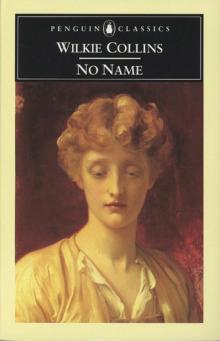 No Name
No Name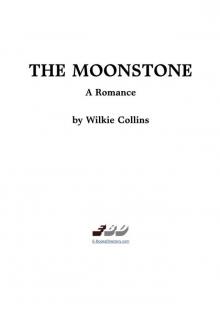 The Moonstone (Penguin Classics)
The Moonstone (Penguin Classics)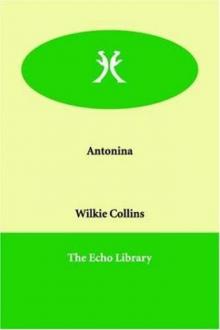 Antonina
Antonina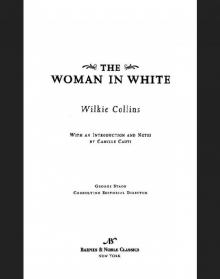 Woman in White (Barnes & Noble Classics Series)
Woman in White (Barnes & Noble Classics Series)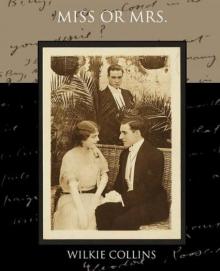 Miss or Mrs
Miss or Mrs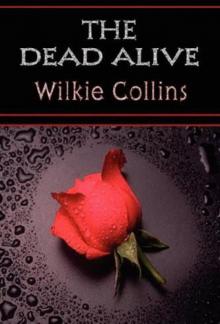 The Dead Alive
The Dead Alive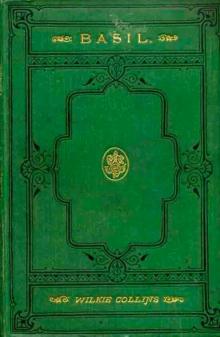 Basil
Basil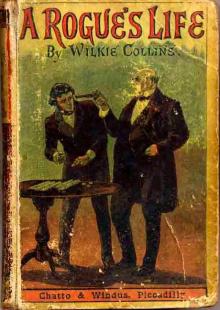 A Rogue's Life
A Rogue's Life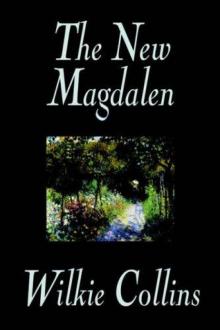 The New Magdalen
The New Magdalen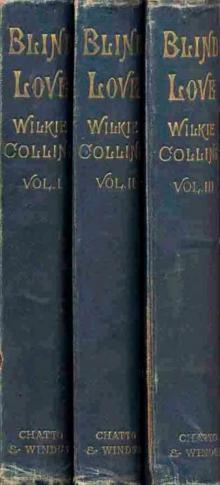 Blind Love
Blind Love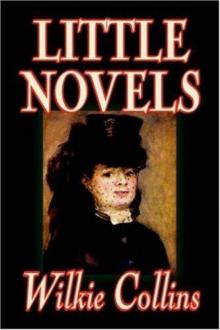 Little Novels
Little Novels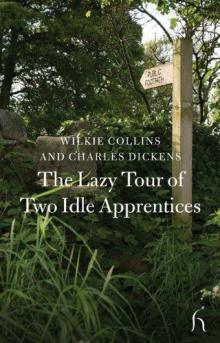 The Lazy Tour of Two Idle Apprentices
The Lazy Tour of Two Idle Apprentices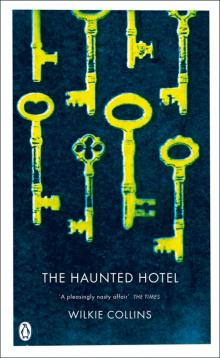 The Haunted Hotel
The Haunted Hotel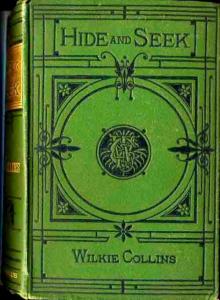 Hide and Seek
Hide and Seek